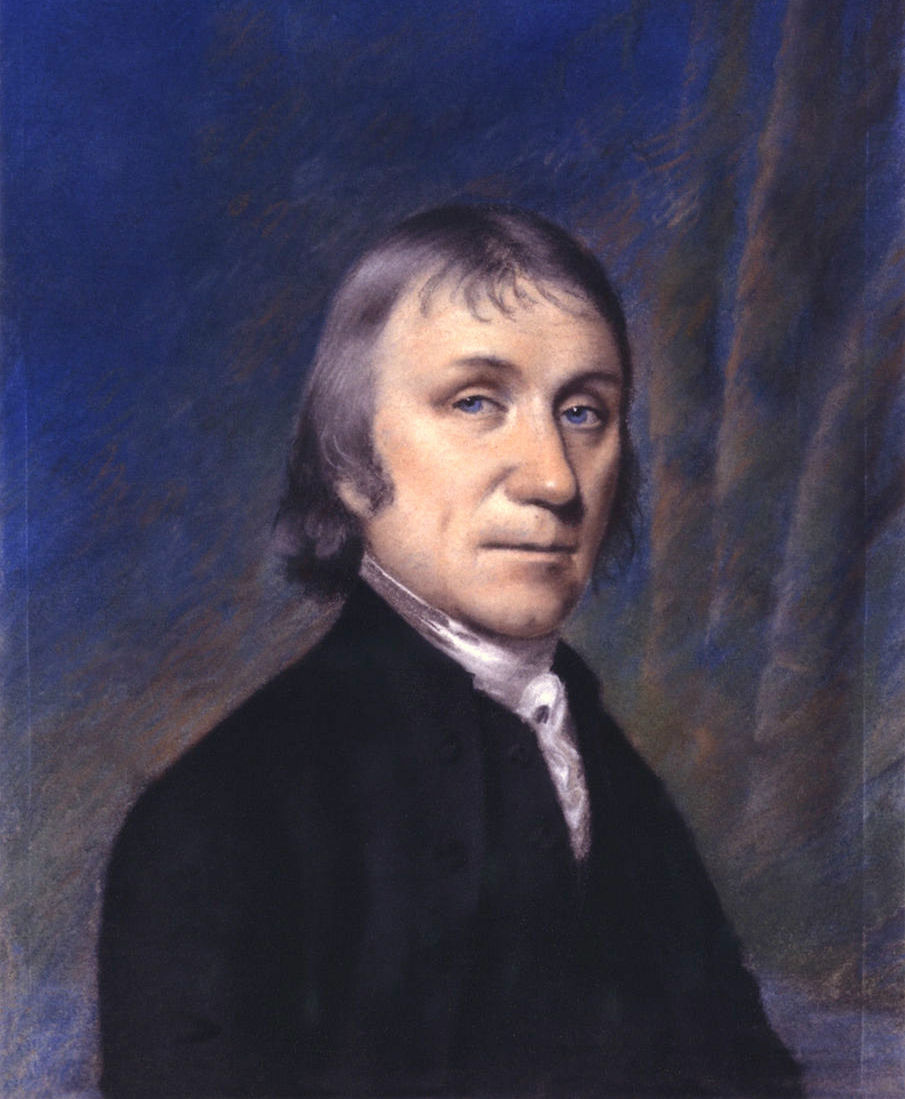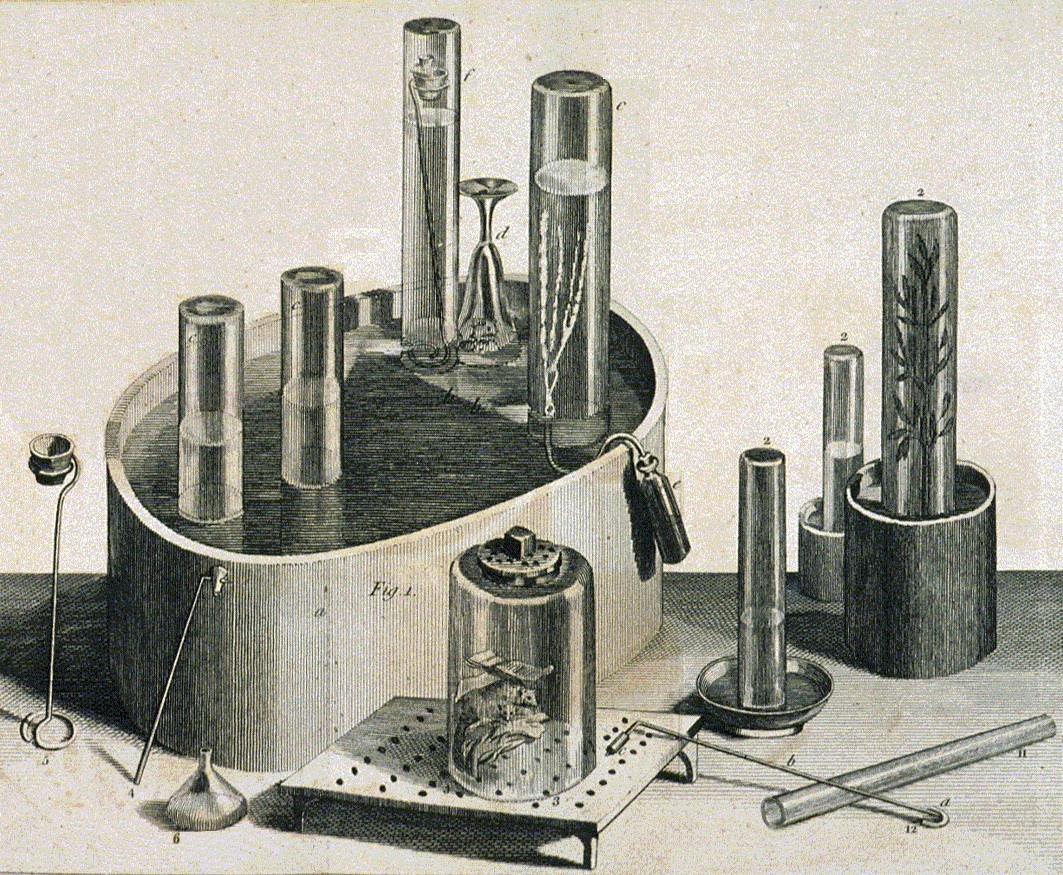|
To Priestley
"To Priestley" is a sonnet by Samuel Taylor Coleridge first published in the 11 December 1794 ''Morning Chronicle''. Like most of the '' Sonnets on Eminent Characters'', "To Priestley" addresses an individual Coleridge particularly admired; Joseph Priestley held many political and theological beliefs that Coleridge adopted during this time. Background Coleridge completed "To Priestley" at the beginning of December 1794. Following "To Burke", "To Priestley was published in the 11 December 1794 ''Morning Chronicle'' as the third poem in the ''Sonnets on Eminent Characters'' series. The poem was later included in Coleridge's 1796 collection of poems and collections printed after with few changes. After a mob burned Priestley's Birmingham house during the summer of 1791, he left England for America.Mays 2001 pp. 157–158 The mob that drove Priestley away were motivated by Priestley's support of the French Revolution. Coleridge's own views were similar to Priestley's and even Priestl ... [...More Info...] [...Related Items...] OR: [Wikipedia] [Google] [Baidu] |
Priestley
Priestley may refer to: Places * Priestley, West Virginia, US, an unincorporated community * Priestley Glacier, a major valley glacier in Antarctica * Priestley (lunar crater), on the far side of the Moon * Priestley (Martian crater) * 5577 Priestley, an inner main belt asteroid People Arts * Alice Priestley (born 1962), Canadian children's writer and illustrator * Brian Priestley (born 1940), English jazz writer, pianist and arranger * Chris Priestley (born 1958), British children's book author and illustrator * Jason Priestley (born 1969), Canadian-American actor * J. B. Priestley (1894–1984), English writer and broadcaster * Mark Priestley (1976–2008), Australian actor *Rick Priestley (born 1959), British miniature wargame designer and author * Robert Priestley (1901–1986), American set decorator * Tom Priestley (born 1932), sound and film editor Sciences * Henry Priestley (biochemist) (1884–1961), Australian biochemist * Hilary Priestley, British mathema ... [...More Info...] [...Related Items...] OR: [Wikipedia] [Google] [Baidu] |
Samuel Taylor Coleridge
Samuel Taylor Coleridge (; 21 October 177225 July 1834) was an English poet, literary critic, philosopher, and theologian who, with his friend William Wordsworth, was a founder of the Romantic Movement in England and a member of the Lake Poets. He also shared volumes and collaborated with Charles Lamb, Robert Southey, and Charles Lloyd. He wrote the poems ''The Rime of the Ancient Mariner'' and ''Kubla Khan'', as well as the major prose work ''Biographia Literaria''. His critical work, especially on William Shakespeare, was highly influential, and he helped introduce German idealist philosophy to English-speaking cultures. Coleridge coined many familiar words and phrases, including "suspension of disbelief". He had a major influence on Ralph Waldo Emerson and American transcendentalism. Throughout his adult life, Coleridge had crippling bouts of anxiety and depression; it has been speculated that he had bipolar disorder, which had not been defined during his lifetime.Jamis ... [...More Info...] [...Related Items...] OR: [Wikipedia] [Google] [Baidu] |
Morning Chronicle
''The Morning Chronicle'' was a newspaper founded in 1769 in London. It was notable for having been the first steady employer of essayist William Hazlitt as a political reporter and the first steady employer of Charles Dickens as a journalist. It was the first newspaper to employ a salaried woman journalist Eliza Lynn Linton; for publishing the articles by Henry Mayhew that were collected and published in book format in 1851 as ''London Labour and the London Poor''; and for publishing other major writers, such as John Stuart Mill. The newspaper published under various owners until 1862, when its publication was suspended, with two subsequent attempts at continued publication. From 28 June 1769 to March 1789 it was published under the name ''The Morning Chronicle, and London Advertiser''. From 1789 to its final publication in 1865, it was published under the name ''The Morning Chronicle''. Founding The ''Morning Chronicle and London Advertiser'' was founded in 1769 by William Woo ... [...More Info...] [...Related Items...] OR: [Wikipedia] [Google] [Baidu] |
Sonnets On Eminent Characters
''Sonnets on Eminent Characters'' or ''Sonnets on Eminent Contemporaries'' is an 11-part sonnet series created by Samuel Taylor Coleridge and printed in the ''Morning Chronicle'' between 1 December 1794 and 31 January 1795. Although Coleridge promised to have at least 16 poems within the series, only one addition poem, "To Lord Stanhope", was published. The poems have been moderately received and emphasized for what they reveal about Coleridge's political and philosophical feelings during his early years. Within the poems, he praises 10 individuals that he treats as his heroes along and denounces two people that he feels have turned against their country and liberty. The sonnet series has been compared to John Milton's addressing of sonnets to his own contemporaries in both the types of individuals chosen and the style of composition. Background When "To Erskine" was published in the 1 December 1794 ''Morning Chronicle'', a note addressed to the editor was printed before it and re ... [...More Info...] [...Related Items...] OR: [Wikipedia] [Google] [Baidu] |
Joseph Priestley
Joseph Priestley (; 24 March 1733 – 6 February 1804) was an English chemist, natural philosopher, separatist theologian, grammarian, multi-subject educator, and liberal political theorist. He published over 150 works, and conducted experiments in electricity and other areas of science. He was a close friend of, and worked in close association with Benjamin Franklin involving electricity experiments. Priestley is credited with his independent discovery of oxygen by the thermal decomposition of mercuric oxide, having isolated it in 1774. During his lifetime, Priestley's considerable scientific reputation rested on his invention of carbonated water, his writings on electricity, and his discovery of several "airs" (gases), the most famous being what Priestley dubbed "dephlogisticated air" (oxygen). Priestley's determination to defend phlogiston theory and to reject what would become the chemical revolution eventually left him isolated within the scientific community. Prie ... [...More Info...] [...Related Items...] OR: [Wikipedia] [Google] [Baidu] |
Experiments And Observations On Different Kinds Of Air
''Experiments and Observations on Different Kinds of Air'' (1774–86) is a six-volume work published by 18th-century British polymath Joseph Priestley which reports a series of his experiments on "airs" or gases, most notably his discovery of oxygen gas (which he called "dephlogisticated air"). Airs While working as a companion for Lord Shelburne, Priestley had a great deal of free time to engage in scientific investigations. The Earl even set up a laboratory for him. Priestley's experiments during his years in Calne were almost entirely confined to "airs" and from this work emerged his most important scientific texts: the six volumes of ''Experiments and Observations on Different Kinds of Air''. These experiments helped repudiate the last vestiges of the theory of four elements; as one early biographer writes: "taken collectively, riestleydid more than those of any one of his contemporaries to uproot and destroy the only generalisation by which his immediate predecessors had ... [...More Info...] [...Related Items...] OR: [Wikipedia] [Google] [Baidu] |
Pantisocracy
Pantisocracy (from the Greek πᾶν and ἰσοκρατία meaning "equal or level government by/for all") was a utopian scheme devised in 1794 by, among others, the poets Samuel Taylor Coleridge and Robert Southey for an egalitarian community. It is a system of government where all rule equally. They originally intended to establish such a community in the United States, choosing a site on the banks of the Susquehanna River after considering other places such as Kentucky. By 1795 Southey had doubts about the viability of this and proposed moving the project to Wales. The two men were unable to agree on the location, causing the project to collapse. Others involved included the poet Robert Lovell and three of the Fricker sisters, Sara, Edith and Mary, who married the three poets, and George Burnett (who proposed unsuccessfully to another Fricker sister, Martha). Their friend Thomas Poole was not part of the scheme but considered moving to somewhere nearby, writing: Princip ... [...More Info...] [...Related Items...] OR: [Wikipedia] [Google] [Baidu] |
1794 Poems
Events January–March * January 1 – The Stibo Group is founded by Niels Lund as a printing company in Aarhus (Denmark). * January 13 – The U.S. Congress enacts a law providing for, effective May 1, 1795, a United States flag of 15 stars and 15 stripes, in recognition of the recent admission of Vermont and Kentucky as the 14th and 15th states. A subsequent act restores the number of stripes to 13, but provides for additional stars upon the admission of each additional state. * January 21 – King George III of Great Britain delivers the speech opening Parliament and recommends a continuation of Britain's war with France. * February 4 – French Revolution: The National Convention of the French First Republic abolishes slavery. * February 8 – Wreck of the Ten Sail on Grand Cayman. * February 11 – The first session of the United States Senate is open to the public. * March 4 – The Eleventh Amendment to the United States Constitu ... [...More Info...] [...Related Items...] OR: [Wikipedia] [Google] [Baidu] |
British Poems
British may refer to: Peoples, culture, and language * British people, nationals or natives of the United Kingdom, British Overseas Territories, and Crown Dependencies. ** Britishness, the British identity and common culture * British English, the English language as spoken and written in the United Kingdom or, more broadly, throughout the British Isles * Celtic Britons, an ancient ethno-linguistic group * Brittonic languages, a branch of the Insular Celtic language family (formerly called British) ** Common Brittonic, an ancient language Other uses *''Brit(ish)'', a 2018 memoir by Afua Hirsch *People or things associated with: ** Great Britain, an island ** United Kingdom, a sovereign state ** Kingdom of Great Britain (1707–1800) ** United Kingdom of Great Britain and Ireland (1801–1922) See also * Terminology of the British Isles * Alternative names for the British * English (other) * Britannic (other) * British Isles * Brit (other) * Briton (d ... [...More Info...] [...Related Items...] OR: [Wikipedia] [Google] [Baidu] |

%2C_Portrait_miniature%2C1809.jpg)


